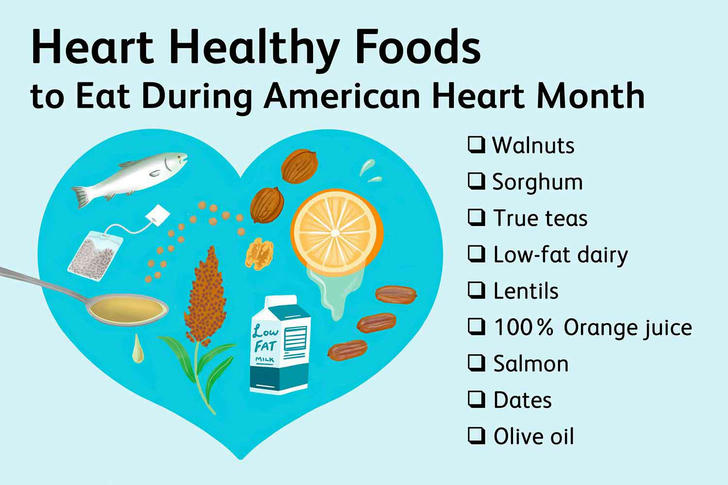Comprehensive Heart Health Nutrition Guide : Evidence-Based Strategies to Reduce Cardiovascular Risk
Cardiovascular diseases remain the leading cause of mortality among women and individuals over 65, accounting for 1 in 3 deaths globally. While genetics play a role, emerging research highlights that dietary choices directly influence heart health outcomes. This guide combines clinical guidelines, nutritional science, and real-world strategies to empower older adults and women to make informed decisions about their cardiovascular wellness.
Understanding Heart Disease Risks
1. Gender-Specific Risks
Hormonal Shifts: Postmenopausal women face a 2-3x increase in LDL ("bad") cholesterol due to declining estrogen levels.
Underdiagnosis: Women are 50% more likely than men to receive incorrect initial heart disease diagnoses.
Pregnancy Complications: Gestational diabetes or preeclampsia double lifetime cardiovascular risk.
2. Age-Related Challenges
Metabolic Slowdown: After age 60, basal metabolic rate decreases by ~10%, increasing obesity-related risks.
Medication Interactions: Common prescriptions like beta-blockers may alter electrolyte balance, affecting heart rhythm.
Sarcopenia: Muscle loss accelerates after 65, reducing calorie burn and insulin sensitivity.
Evidence-Based Nutrition Strategies
Tier 1: Foods to Emphasize
a. Omega-3 Powerhouses
Fatty Fish: Salmon (4 oz = 1.5g EPA/DHA), mackerel, and sardines reduce triglycerides by up to 30%.
Plant Sources: Ground flaxseeds (2 tbsp = 1.6g ALA) and walnuts (1 oz = 2.5g ALA) improve arterial flexibility.
b. Soluble Fiber Champions
Oats: Avenanthramides in oats lower blood pressure by inhibiting LDL oxidation.
Legumes: Lentils (1 cup cooked = 16g fiber) reduce C-reactive protein (CRP), a key inflammation marker.
c. Antioxidant-Rich Foods
Berries: Anthocyanins in blueberries improve endothelial function within 8 weeks.
Dark Chocolate: 70% cocoa boosts nitric oxide production, enhancing blood flow.

Tier 2: Strategic Modifications
a. Cooking Oil Upgrades
Replace butter with extra-virgin olive oil (2 tbsp/day lowers stroke risk by 34%).
Use avocado oil for high-heat cooking (smoke point 520°F).
b. Sodium Reduction Toolkit
Swap canned soups (avg 900mg/can) for homemade bone broth (100mg/cup).
Flavor dishes with herb blends: garlic powder + rosemary reduces arterial stiffness.
c. Hydration Hacks
Drink 8oz water before meals to reduce caloric intake by 13%.
Limit sugary drinks: 1 can soda/day increases heart failure risk by 20%.
Practical Meal Planning Framework
Sample 7-Day Menu
| Day | Breakfast | Lunch | Dinner | Snack |
|---|---|---|---|---|
| Monday | Greek yogurt + chia seeds + berries | Tuna salad lettuce wraps | Grilled chicken + quinoa | Roasted chickpeas |
| Tuesday | Oatmeal with almond milk + walnuts | Lentil soup + whole-grain bread | Baked salmon + steamed broccoli | Apple slices |
| Wednesday | Smoothie (spinach + berries + flax) | Turkey chili with beans | Stir-fried tofu + kale | Carrot sticks |
| Thursday | Scrambled eggs + avocado toast | Quinoa salad with feta + cucumber | Roast turkey breast + Brussels | Mixed nuts |
| Friday | Chia pudding + coconut flakes | Hummus wrap with veggies | Baked cod + sweet potato fries | Dark chocolate |
| Saturday | Breakfast burrito (egg + beans) | Grilled veggie wrap | Chicken curry + cauliflower rice | Pear |
| Sunday | Overnight oats + pecans | Shrimp stir-fry with zucchini | Beef stew with root vegetables | Rice cakes |

Behavioral Interventions for Long-Term Success
1. Mindful Eating Practices
Use smaller plates (10-inch diameter reduces intake by 22%).
Chew each bite 20-30 times to improve satiety signaling.
2. Social Support Systems
Join cooking classes (reduces social isolation by 40%).
Partner with a "diet buddy" for weekly meal prep sessions.
3. Digital Health Tools
Track sodium intake with apps like MyFitnessPal (set daily limit <1500mg).
Monitor blood pressure weekly using at-home cuffs.
Case Study: Transformative Results at 72
Mrs. Thompson’s Journey:
Baseline: 68 y/o with hypertension (160/90 mmHg) and prediabetes (A1C 6.2%).
Interventions:
Switched to DASH diet + 30g walnuts/day.
Incorporated 10k steps/day with a senior-friendly pedometer.
Outcomes:
BP normalized to 120/75 mmHg in 3 months.
A1C dropped to 5.4% without medication.
Debunking Common Myths
| Myth | Fact |
|---|---|
| "Eggs raise cholesterol." | Dietary cholesterol has minimal impact on blood lipids for most adults. |
| "Low-fat diets are best." | Moderate-fat Mediterranean diet reduces CV events by 30% vs low-fat. |
| "Supplements replace food." | No pill replicates the synergistic benefits of whole foods. |
Final Recommendations
Prioritize Consistency Over Perfection: Aim for 80% adherence to heart-healthy patterns.
Schedule Regular Checkups: Monitor lipid panels, CRP, and homocysteine annually.
Advocate for Yourself: Request echocardiograms if experiencing shortness of breath or fatigue.
By integrating these strategies, can achieve meaningful reductions in cardiovascular risk while enhancing overall quality of life. Start small, celebrate progress, and remember: every healthy choice compounds over time.
Take Action Today: Consult your healthcare provider to personalize this guide for your unique needs.
